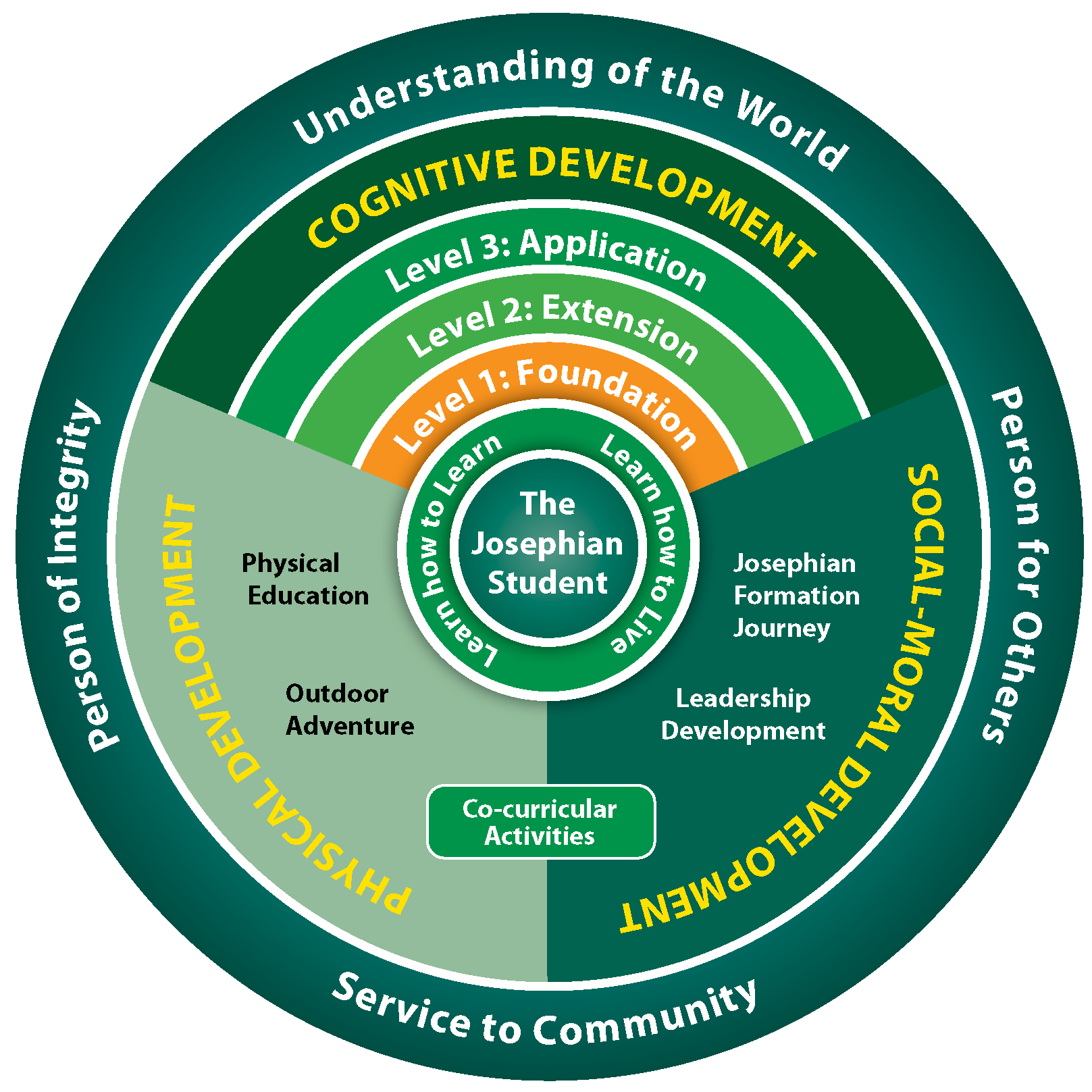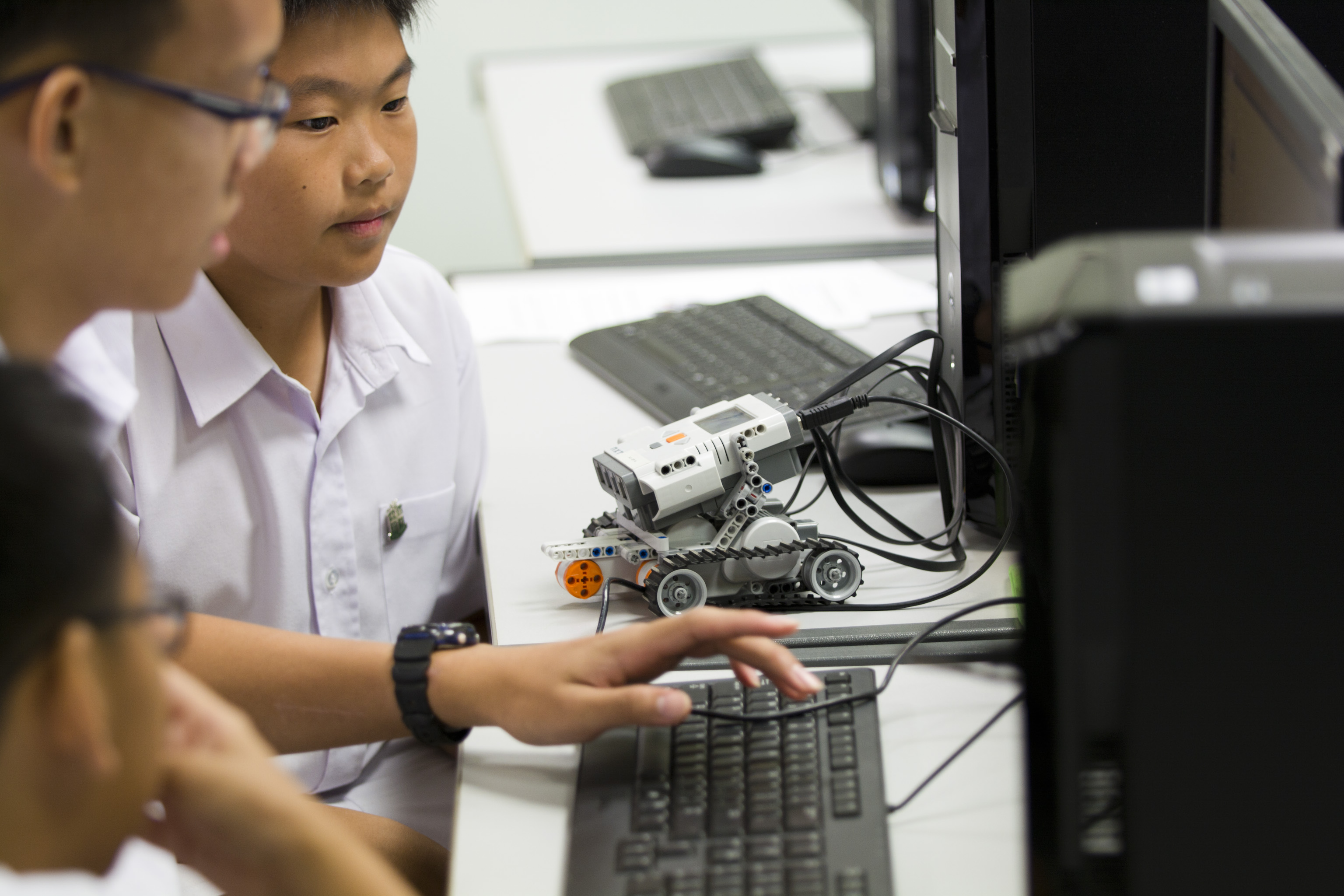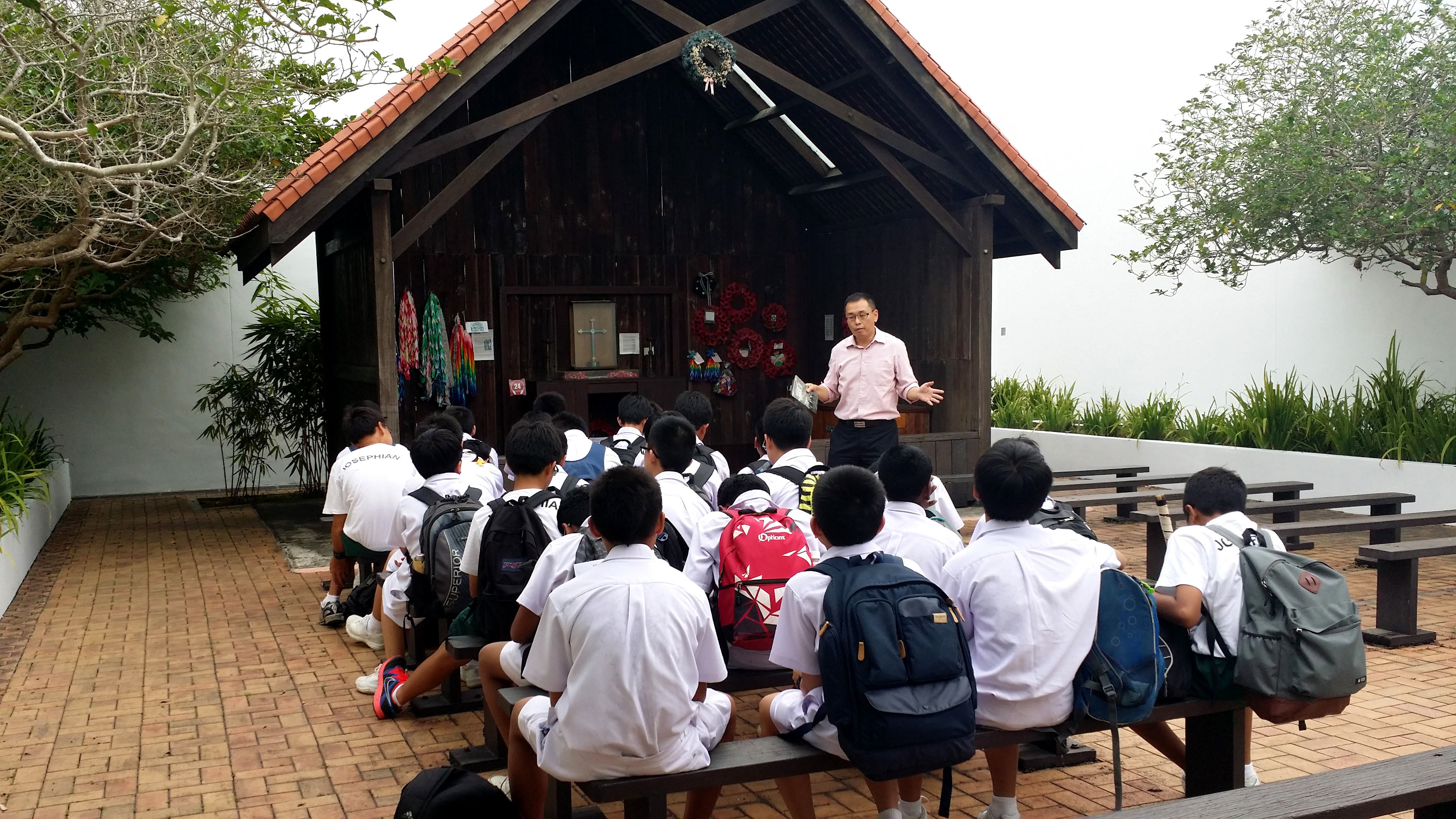Secondary Education Certificate (SEC) Programme
The academic curriculum is comprehensive and demanding, and is designed to prepare students for the Secondary Education Certificate (SEC) examinations and, more importantly, for post-secondary education and beyond. Hence, our goal is for every Josephian to offer a combination of SEC subjects that will give him as many choices as possible for his post-secondary education and to face future challenges.
At the lower secondary level, all boys do the following examinable subjects: English Language, Mother Tongue Languages (MTL), Mathematics, Science and Humanities. Higher Mother Tongue Languages (HMTL) offers students the chance to study Chinese, Malay or Tamil at a more advanced level. In order to study HMTL, students must have obtained either:
- An overall PSLE Score of 8 or better
- An overall PSLE Score of 9 to 14 and get AL1 or AL2 in MTL, or Distinction or Merit in HMTL.
At the upper secondary level, boys in the SEC Programme can choose from a variety of subject combinations:
- 8 Subject Combination: 2 Languages + 1-2 Humanities + 2 Mathematics + 2-3 Sciences
- 7 Subject Combination: 2 Languages + 1 Humanities + 2 Mathematics + 2 Sciences
The specific SEC subjects offered include:
- Languages: English Language, Chinese/Malay/Tamil Language or Higher Chinese/Malay/Tamil Language
- Mathematics: Mathematics, Additional Mathematics
- Sciences: Biology, Chemistry, Physics
- Humanities: Humanities (Social Studies + Geography or Social Studies + History), English Literature, Geography, History, Exercise & Sports Science
- Others: Art, Higher Art, Music
All Upper Secondary Boys are required to offer Humanities as one of their Humanities subjects. Humanities consist of Social Studies and one Humanities subject which includes English Literature, Geography or History.
For Humanities, SJI only offers Social Studies with either History or Geography. Boys who intend to offer English Literature as an O-Level subject will have to offer the subject as a full Humanities subject at SEC.
Levels of Learning at SJI (Year 1 - 4)

The Levels of Learning is the core framework behind the Cognitive Development component of an SJI education. It describes the Josephian student as moving from foundational subject-based knowledge, to extending learning by adopting an inquiry-mindset motivated by interest and passion, and eventually making use of this knowledge in service to the community in authentic settings.
While the Levels of Learning are designed with the IBDP in mind, all SJI students at the Lower Secondary years will have a chance to participate in all 3 Levels of Learning.
- Level 1 Learning: Academic Foundation
- Level 2 Learning: Academic Extension
- Level 3 Learning: Academic Application
Level 1 Learning: Academic Foundation
SJI offers a broad-based curriculum, comprising languages, humanities, sciences and mathematics, which provides a strong foundation for exploring interests and talents, and for further studies in the IBDP for the boys on the IP track, and flexibility for IBDP or ‘A’ Level for the boys in the SEC Programme. At upper secondary level, most students offer an 8 subject combination.
_2023-ipsec.png)
-
Josephian Arts Programme (JAP Visual Arts)
JAP Visual Arts is a four-year academic programme designed for Josephians in Years 1 – 4 to encourage and enable them to develop specific skills to create art, make purposeful connections between investigation and practice, communicate and express artistic thoughts, respond to and reflect on art to be socially aware and relevant. JAP is compulsory for DSA Visual Arts students.
Level 2 Learning: Academic Extension (Years 1 & 2 Programmes)
Building Understanding of the World Through Inquiry & Nurturing a Sense of Wonder and Curiosity
-
Academic Discovery Modules (ADM)
 To inquire about the world or the self through a process guided by teachers. This process will get students to adopt lenses of the discipline in order to answer essential questions. As an example, this will give them opportunities to think and act like a scientist or historian.
To inquire about the world or the self through a process guided by teachers. This process will get students to adopt lenses of the discipline in order to answer essential questions. As an example, this will give them opportunities to think and act like a scientist or historian.
-
Independent Study Modules (ISM)
 To inquire about a topic of great interest through an independent research. Students get to pose any inquiry questions (E.g. What kind of lives do celebrities lead? Why do frogs croak after rain?) which may arise in their daily lives, and go through an independent research process to answer these questions. They will then do an oral presentation in order to communicate their learning.
To inquire about a topic of great interest through an independent research. Students get to pose any inquiry questions (E.g. What kind of lives do celebrities lead? Why do frogs croak after rain?) which may arise in their daily lives, and go through an independent research process to answer these questions. They will then do an oral presentation in order to communicate their learning.
-
Josephian Innomakers Programme
The Josephian Innomakers Programme aims to provide students with the opportunities and platforms to learn through play, and through this playful learning, learn to be agents of change by innovating in service to the community. Creative Problem Solving framework and Design Thinking will be integrated into the curriculum to encourage students to Think, Make, Do and Share. Students will be introduced to the 21st-century workplace as they learn skills like coding, building robots, 3D printing, video-making and cardboard modelling. Skills and dispositions aligned with the IBDP Approaches to Learning (AtL) will be developed as the learning experiences challenge students to communicate, collaborate, self-manage, research, and think creatively as well as critically.
-
Junior Researcher Programme (JRP)
The Junior Researcher Programme focuses on educating and equipping students with foundational research skills, which will be extended as they progress on to Year 3 and 4 IP and SEC with Signum Fidei and Curriculum+ respectively. It is designed to encourage interdisciplinary learning and discovery by infusing research skills as a pedagogical tool in Level 1 and Level 2 learning. The programme also seeks to talent scout and develop IP and SEC students, with aptitude in research work, to represent the school and participate in competitions and various research programme at the national level.
Level 3 Learning: Academic Application (Years 3 & 4 Programmes)
Systematic Inquiry to Address Issues or Problems in Service to Community
-
Curriculum+ (SEC 3 & 4)
In Curriculum+, we facilitate our students’ discovery of their strengths and build enduring skills through purposeful design modules. Year 3 students acquire values and dispositions of collaboration, self-directedness, risk-taking and service orientation through Project Work and the Electives. As part of the Education and Career Guidance module, the Year 4 students are exposed to traditional and non-traditional occupations through direct interactions with practitioners.


